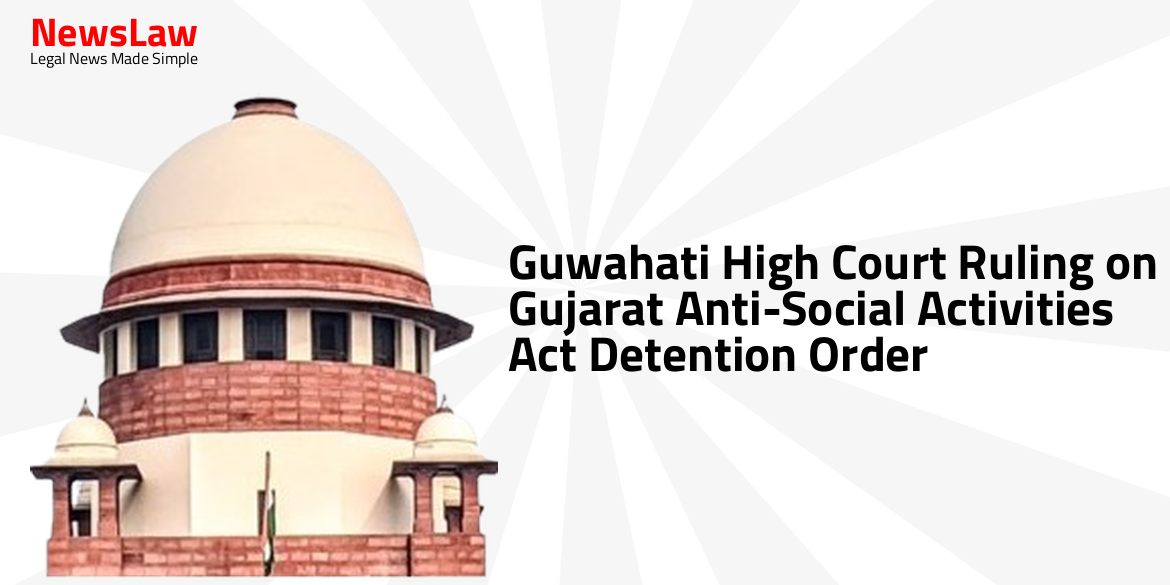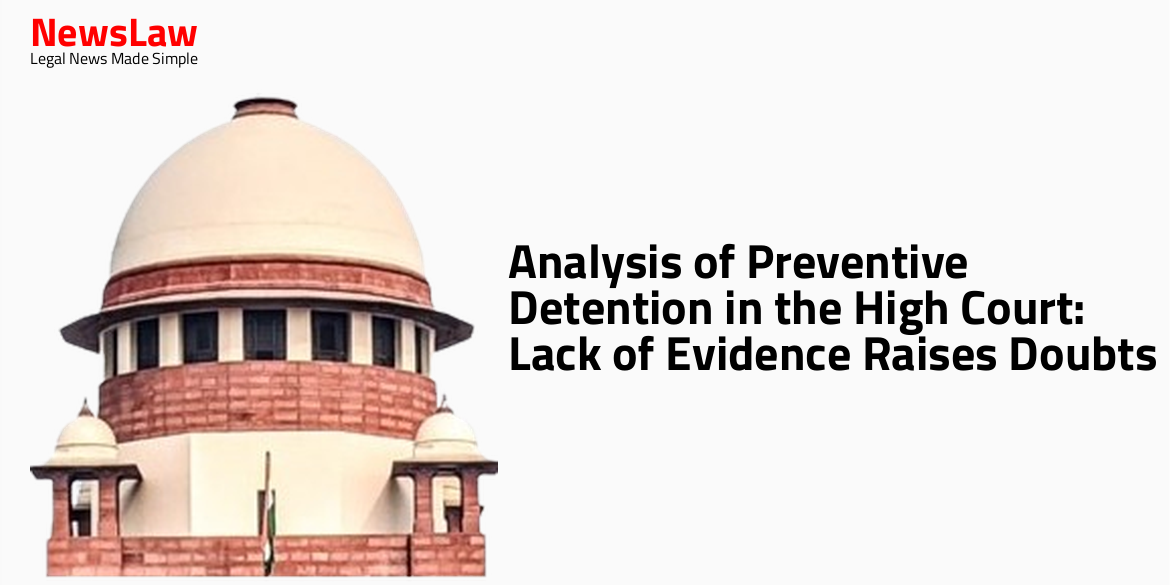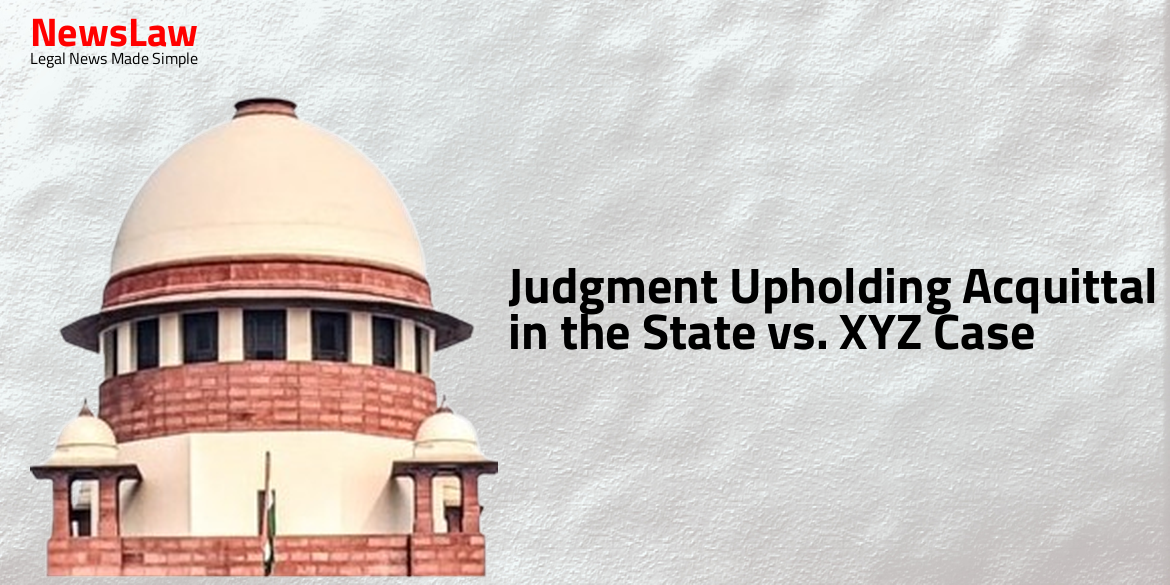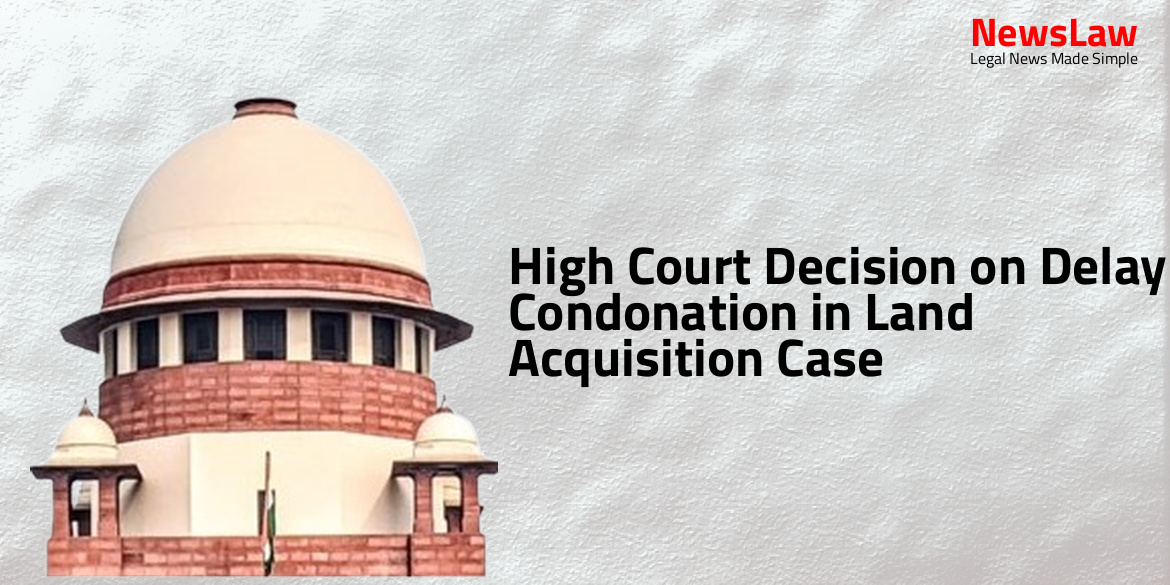The Guwahati High Court recently delivered a significant judgment concerning the detention order under the Gujarat Prevention of Anti-Social Activities Act. The case highlighted the critical balance between preventive detention and individual liberties, underscoring the importance of upholding fundamental rights in cases where personal liberty is at stake.
Facts
- The present petition challenges the detention order dated 11.01.2024 passed by the detaining authority under the Gujarat Prevention of Anti-Social Activities Act, 1985.
- The detaining authority invoked powers under Section 3(1) of the Act to detain the petitioner as per Section 2(c) of the Act.
- The petitioner is challenging the legality of the detention order through this petition.
Issue
- The issue involves the interpretation of Article X of the Constitution of India.
- The contention of the Petitioner is that the impugned order violates fundamental rights guaranteed under Article Y.
- The Respondent argues that the order is in line with the provisions of Article Z and is necessary for public interest.
- The Court must determine whether the impugned order is in accordance with the Constitution and fundamental rights of the parties involved.
Arguments
- Learned advocate argues that the activities of the petitioner – detenue in the criminal cases did not disturb the social fabric of society or threaten normal life.
- Detaining authority didn’t consider that the petitioner is released on bail for all offenses.
- Impugned order of detention solely based on the registration of three FIRs, which may not fall under the definition of the Act.
- Illegal activities alleged do not relate to public order but rather to law and order.
- Lack of relevant material showing the petitioner’s activities as breach of public order.
- The detaining authority’s subjective satisfaction is found to be invalid as the offenses alleged in the FIRs do not impact public order as required by the Act.
- Other relevant penal laws are sufficient to address the situation mentioned in the FIRs.
- The allegations against the petitioner – detenue are not relevant to bring them under Section 2(c) of the Act.
- For a person to be detained under the Act, they must pose a threat to society that disrupts the overall social order and endangers public order.
- The detention order was supported by the learned AGP for the respondent-State, citing sufficient materials and evidence from the investigation.
Analysis
- The court highlighted the importance of following strict constitutional safeguards against abuse in cases of detention, which have originated from the colonial era.
- The order did not mention any application for cancellation of bail by the State authorities, indicating a lack of substantial reasons for detention.
- Article 22 was interpreted as an exception to Article 21, applicable only in rare and exceptional cases.
- Both the Apex Court and the current court emphasized the significance of protecting personal liberty under Article 21, placing the onus on the detaining authority to prove that the detention aligns with established legal procedures.
- The court ruled in favor of the petitioner, emphasizing that mere registration of FIRs does not necessarily indicate a breach of public order or warrant invocation of powers under Section 3(1) of the Act.
- The lack of relevant and cogent material further weakened the grounds for invoking the power under Section 3(1) of the Act.
- Consequently, the petition was allowed, the detention order was quashed, and the detenue was ordered to be released immediately if not required in any other case.
- The court criticized the non-application of mind by the detaining authority to material circumstances influencing their subjective satisfaction for detention.
- The court considered the two registered FIRs against the detenue as matters that could be addressed through ordinary criminal law processes.
- The distinction between disturbance to ‘law and order’ and disturbance to ‘public order’ has been clearly settled by a Constitution Bench in the case of Dr. Ram Manohar Lohia vs. State of Bihar.
- Acts affecting law and order may not necessarily affect public order, and acts affecting public order may not necessarily affect the security of the State.
- Preventive detention should not be used as a substitute for ordinary law enforcement but should be applied when extremely necessary.
- The personal liberty of an individual is paramount and should not be sacrificed on the grounds of preventive detention without strong justification.
- The Constitution mandates a careful balance between preventive detention and individual liberties under Articles 21 and 22.
- The distinction between ‘public order’ and ‘law and order’ is central to determining the validity of preventive detention orders.
- Acts that disturb public order must have an impact on the community or the public at large.
- An elaborate legal process is necessary before resorting to preventive detention, considering the gravity of restrictions involved.
- Recent instances of detention orders being quashed indicate a need for a reevaluation of the application of preventive detention powers by authorities.
Case Title: GANESH @ BABU KALIYO S/O SURESHBHAI JADHAV Vs. STATE OF GUJARAT
Case Number: R/SCA/1823/2024



